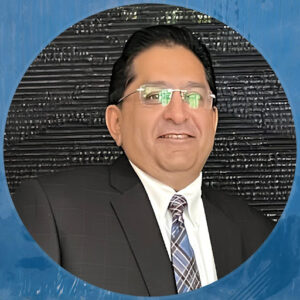
Career transitions between industries are becoming more common as professionals seek deeper fulfillment, better work-life balance, or opportunities to leverage their skills in new ways. Moving from finance to hospitality may appear unconventional, yet it reflects a broader trend of individuals realigning their careers to match personal and professional aspirations.

For Asad Malik, the structured, analytical mindset developed in finance roles often complemented the dynamic, people-oriented nature of hospitality. As individuals adapt, they often discover that their prior experiences not only remain relevant but also become powerful assets in a new context.
Career Shifts Across Industries
Career transitions have become increasingly common as professionals seek roles that better align with their interests, values, or lifestyle needs. Moving from finance to hospitality may seem like a leap, but it’s part of a broader pattern where individuals pursue meaningful work in new sectors.
Some leave office environments to engage directly with people in more dynamic settings. A former financial analyst might now manage operations at a boutique hotel, finding fulfillment in daily guest interactions and team leadership. With economic shifts and evolving job expectations, it’s no longer unusual to see resumes that span very different fields.
Building a Strong Foundation in Finance
Finance roles often shape professionals into sharp, detail-oriented thinkers. Whether managing portfolios or analyzing budget reports, individuals develop a disciplined approach to problem-solving and data interpretation that stands out in any industry. These roles also demand a high level of accountability, which becomes second nature.
Someone who spent years in corporate finance may have mastered the art of forecasting, streamlining budgets, or optimizing operational costs. When applied in a hospitality setting, such skills can lead to improved resource management and smarter business decisions, giving former finance professionals a unique edge. The ability to see beyond surface-level figures and identify long-term patterns also proves valuable in guest satisfaction analysis and seasonal planning.
The Move to Hospitality
Shifting to hospitality is often driven by a desire to connect more deeply with people and work in a setting that feels alive and energizing. The fast-paced, guest-centered nature of hospitality can be refreshing for someone used to spreadsheets and tight financial reporting cycles.
For many, the appeal lies in the opportunity to create memorable experiences. A career once centered around numbers becomes one focused on service, ambiance, and human interaction. This reorientation can breathe new life into a professional journey that once felt rigid or repetitive. Some even discover hidden talents in team leadership, event planning, or guest engagement that had been underutilized in previous roles.
Starting Fresh
Breaking into hospitality with a finance background requires a willingness to learn and adapt. While industry-specific knowledge might be unfamiliar at first, the core professional habits—punctuality, attention to detail, strategic thinking—translate well. Many hospitality employers value a fresh perspective, especially when paired with strong analytical capabilities.
A former accountant might begin as a front desk supervisor or operations assistant, using their organizational skills to streamline guest check-ins or optimize room bookings. Immersion in day-to-day operations, combined with a commitment to understanding hospitality culture, often accelerates the transition. Over time, small wins in operational efficiency or guest satisfaction can help build credibility and open doors to larger leadership opportunities.
Applying Finance Expertise in a New Career
Bringing financial knowledge into hospitality settings can create a measurable impact. Whether it’s refining cost controls in a hotel kitchen or improving profit margins through better forecasting, these contributions often go beyond what traditional hospitality training covers.
One hotel chain saw notable improvements in monthly reporting accuracy after hiring a former finance manager to oversee revenue operations. Their ability to dissect numbers, spot inefficiencies, and present actionable insights made a clear difference. The blend of service-mindedness and financial discipline can set a new standard for operational excellence. Additionally, their background enabled better vendor negotiations and more agile responses to market fluctuations.
Overcoming Challenges and Planning for Growth
Adapting to a new industry often means letting go of titles and seniority, at least temporarily. The hospitality world operates on a different rhythm, one that prioritizes immediacy, flexibility, and emotional intelligence. The shift can be humbling but also invigorating.
Long-term growth becomes possible when individuals embrace both their existing strengths and the new skills they’re building. Combining financial savvy with hospitality fluency opens doors to leadership roles that require both numbers and nuance. As confidence grows, so does the ability to influence culture, mentor peers, and drive innovation within teams.
Disclaimer
The information contained in South Florida Reporter is for general information purposes only.
The South Florida Reporter assumes no responsibility for errors or omissions in the contents of the Service.
In no event shall the South Florida Reporter be liable for any special, direct, indirect, consequential, or incidental damages or any damages whatsoever, whether in an action of contract, negligence or other tort, arising out of or in connection with the use of the Service or the contents of the Service.
The Company reserves the right to make additions, deletions, or modifications to the contents of the Service at any time without prior notice.
The Company does not warrant that the Service is free of viruses or other harmful components












